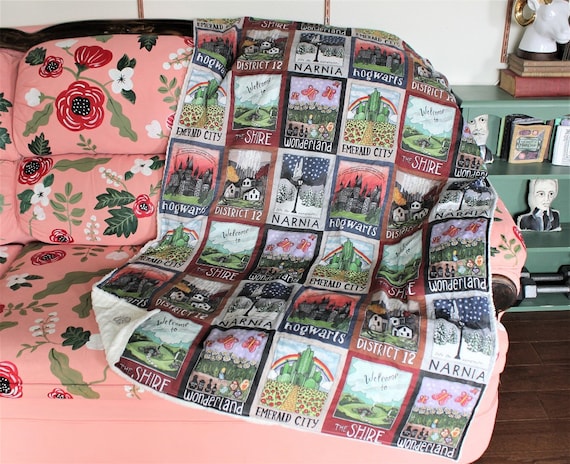The last line to this book has been going round and round
and round in my head since I put it down last night. And I devoured the last 60
pages or so like a person who was never going to be allowed to read again.
Wow.
I shan’t tell you what that last line is because unless you
are the kind of person (Mum, I’m looking at you) that reads the last page of a
book first, that would be the worst kind of spoiler. Just know that it I am still thinking about it.
I almost gave Hausfrau 5
stars you know. The only reason I didn’t is because I had to think about
whether I should and by my own logic that means that I shouldn’t. So I didn’t.
It looks like I’ve given it 4, but it’s really more like 4.5. Perhaps even 4
and ¾.
Anna was a good wife, mostly.
Anyway, Hausfrau. It’s
been likened to Anna Karenina, and Madam Bovary; it’s about the American wife of a Swiss banker, living in Switzerland;
it features - quite heavily - a less than happy marriage and a lot of adultery;
it’s the debut novel from Jill Alexander Essbaum; and, in a weird way it kind
of reminded me of Revolutionary Road .
I loved Revolutionary Road. This isn’t the
same as that, at all, the main difference being that Revolutionary
Road is set in 50’s America, but they’re both beautifully written
and there’s the whole disintegration of a marriage thing going on, alongside
the struggling with suburban expectations of society and the feeling of being
out of place: Anna doesn’t fit in where she is in the same way that Frank and
April thought that they were worlds away from the rest of the people living in
the Estates. There’s the adultery issue (Frank and April both cheat) and there’s
a similar sense of…of dread I guess. Reading Revolutionary
Road has you feeling kind of like your watching something roll out
of control down a hill, it’s gathering speed and it’s going to crash and make a
horrible mess; you know it won’t end well but you can do nothing but stand
there and watch it happen. I got the same sort of feeling with Hausfrau. Both books are about that feeling of being alone I think, how even with a picture perfect life you can still feel inexplicably
lonely and how you can get so far down the rabbit hole that in trying to make it
better you only end up making it so much worse.
However, a comparison post this is not, which is A Good Thing because
I’m not quite sure I could do that justice. Basically, I just want to talk at
you about how good Hausfrau is and
how if you liked Revolutionary Road at all, then this is a thing you should be thinking about
reading.
I didn’t know what to expect, really when I decided I wanted
to read this book. I wanted to read it partly because it sounded different and
I was itching for something new and unlike the books I would perhaps normally
reach for and partly because I was intrigued.
So not knowing what to expect, what have I got to say? Oh,
so many things. I have so many things to say, starting with this is a novel
that gets you right in the chest, it’s raw and harsh and unflinchingly honest.
It’s gripping and it’s heartbreaking and it’s so freaking good.
Seriously, though, it is. Hausfrau is
so much more than what you might expect it to be upon reading the cover. It’s
so much more than the tale of a bored housewife attempting to jazz up her days
through extramarital affairs, so much more. It’s also not Fifty Shades-esque ‘erotica.’
Soz. It’s a book that gets under your
skin; it’s an intelligent study of character and relationships; it’s a really
fascinating story of a woman on the edge that leaves you desperate somehow to fix her, despite not knowing really whether to want to hold
her or slap her. It’s frustrating and it’s full of ideas and themes that
sometimes I couldn’t quite get my head around, because Anna’s life is not my
life, but that never left me feeling anything other than really totally 100%
engaged.
The story is a seamless weave of Anna’s life, her sessions
with her therapist and her German classes – moving rapidly from one place to
another, from that time to this but never leaving you wondering where you are
or what’s happening. It’s beautifully written and cleverly put together and you
know, it’s funny because on the surface Anna doesn’t seem like all that likable
a person but I found myself liking her anyway. I did. By the end of the book I
just wanted to pour her a glass of wine and put my arm around her and tell her
it could all be different. Did I relate to her? No, and yes. She made choices
that I like to think I’d never make but at the same time there were things
about her, things she said or did that got to me right in the pit of my
stomach; I think to a degree most women will see something in Anna that they
recognise in themselves, not that that makes all of us adulterers, obvs, but
more that sometimes a sense of dissatisfaction can threaten to consume, that
sometimes it’s a struggle to know who you are and where you fit and sometimes
even the happiest of people have days when everything they thought they wanted
doesn’t feel like quite enough.
The language in this book is stunning, like, really
mind-blowingly stunning. There’s so much word play and it’s wonderful; language is a theme throughout the book and it
has a powerful effect: Anna’s German classes have a direct correlation with the
choices she’s making, and some of the conversations she has with her therapist
are a direct discussion of words and their meanings (secrecy/privacy,
labyrinth/maze, lust/love) It really is SO DAMN CLEVER how these conversations
tie in with Anna’s state of mind, how
these fascinating discussions have a bearing on what went before or what comes
after. There were times, usually after one of Anna’s therapy sessions, that
what I had just read would hit me, and I’d practically have kicky-feet because
it felt like utter genius. It’s the
language that makes this book what it is for me. I am such a sucker for pretty
words and it’s the way Essbaum uses those words, her turn of phrase, that makes
this book such a freaking pleasure to read. It’s a pleasure where really you
don’t expect it to be, which is the best kind of pleasure really.
What I’m saying is this book won’t make you laugh and
there’s not a whole lot going on, action wise, oh and there’s some fairly
explicit sex but please, do not dismiss this book because you don’t want to
read a story about a woman who cheats on her husband and feels bad about it; do
not dismiss it because somebody somewhere used Fifty Shades
when looking for a comparison; do not, actually, dismiss this book at all ever
ever. Find a copy, and read it: let yourself be drawn into Anna’s story as well
crafted as it is, let Essbaum’s writing make you think and question and try to
figure out at every turn whether Anna is trying to conceal or reveal and why and what that means, let
yourself be seduced by the pretty words because why would you not– it’s so insightful and so worth your time.
This is a good thing I am doing, Anna said inside herself, though ‘good’ was hardly the right word. Anna knew this. What she meant was expedient. What she meant was convenient. What she meant was wrong in nearly every way but justifiable as it makes me feel better, and for so very long I have felt so very, very bad.





